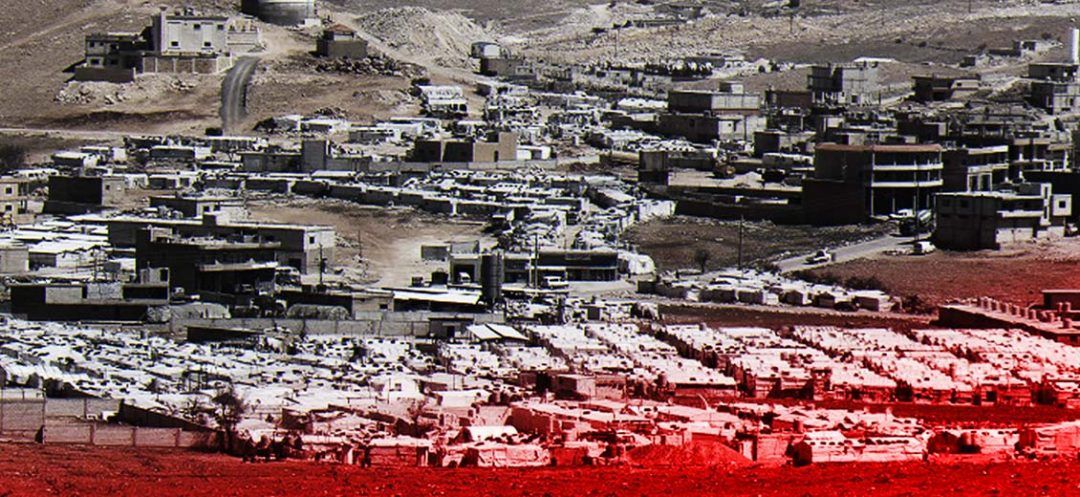
Seldom has Lebanon faced the international community with a unified position. It was the case this time, however, regarding one of the most important and pressing matters for the country; the Syrian migrants whose presence on Lebanese soil has become a burden that requires a thorough and responsible approach, away from grudge-bearing and hasty decision-making—which is in contradiction with Lebanon’s history of respecting human rights. That being said, the approach in question should not go against the country’s national interest.
Although the European Union cares very little about the countries hosting Syrian migrants and limits its actions to providing support to these migrants in the said countries, Lebanon was able to prove that it can be united over a shared vision concerning a pivotal issue if the political will is in support of that. In any case, saying that there are magical solutions to the ever-worsening crisis could not be more unrealistic. That said, one must learn from this experience, as it is an almost unprecedented one, and use it as leverage in negotiations with the European Union.
The same applies to internal matters, even the simplest thereof, to give an impression of strength—which has already happened, though only occasionally—when it comes to the state, and to mitigate the general feeling of chaos. While it is true that the state is struggling and that corruption is eating away at most of its institutions, this does not mean that it cannot implement certain decisions in specific fields when it so wills.
The state’s authority, both internal and external, is the most important parameter. This is why the main objective is to elect a new president, in order to breathe life back into the country’s institutions and avoid giving priority to a community’s interests over national interest, which some parties are currently doing.
What is important now, as far as the Syrian migrants are concerned, is for Lebanon to keep exercising diplomacy so that it can convey its message properly and alleviate the burden. To do that, it must have a unified position and respect all laws and international charters. In this context, the first step would be to categorize Syrian migrants in order to deal with each class in conformity with legal and practical data.
The European-pledged 2.17 billion dollars is nothing but a tranquilizer that is far from solving the core of the problem. One can go as far as saying that it is liable to perpetuate the current status quo, ending in the total deterioration of the political and social situation in host countries.
The Europeans have stressed the importance of “not forgetting Syria” in light of the many international crises—the wars in Ukraine and Gaza. But that, and publicly holding Syrian President Bashar al-Assad accountable, is not enough. The EU must be more efficient at finding a permanent settlement to the Syrian crisis, but none of this can be done as long as the relationship with Russia remains toxic—due to Europe’s and the West’s unwavering support for Ukraine, and their constant provocation of the Russian bear.
It would be difficult to picture any solution to the Syrian problem without negotiating with Moscow and Tehran; both countries have direct influence over the politics and future of Syria. As we wait for such an unlikely change to happen, Lebanon and other host countries ought to solve their problems away from racism and hate, and other states should better understand the social and political complexities of each society, especially Lebanon’s.
Lebanon should draw inspiration from its unified position in Brussels, for its people’s sake.
Although the European Union cares very little about the countries hosting Syrian migrants and limits its actions to providing support to these migrants in the said countries, Lebanon was able to prove that it can be united over a shared vision concerning a pivotal issue if the political will is in support of that. In any case, saying that there are magical solutions to the ever-worsening crisis could not be more unrealistic. That said, one must learn from this experience, as it is an almost unprecedented one, and use it as leverage in negotiations with the European Union.
The same applies to internal matters, even the simplest thereof, to give an impression of strength—which has already happened, though only occasionally—when it comes to the state, and to mitigate the general feeling of chaos. While it is true that the state is struggling and that corruption is eating away at most of its institutions, this does not mean that it cannot implement certain decisions in specific fields when it so wills.
The state’s authority, both internal and external, is the most important parameter. This is why the main objective is to elect a new president, in order to breathe life back into the country’s institutions and avoid giving priority to a community’s interests over national interest, which some parties are currently doing.
What is important now, as far as the Syrian migrants are concerned, is for Lebanon to keep exercising diplomacy so that it can convey its message properly and alleviate the burden. To do that, it must have a unified position and respect all laws and international charters. In this context, the first step would be to categorize Syrian migrants in order to deal with each class in conformity with legal and practical data.
The European-pledged 2.17 billion dollars is nothing but a tranquilizer that is far from solving the core of the problem. One can go as far as saying that it is liable to perpetuate the current status quo, ending in the total deterioration of the political and social situation in host countries.
The Europeans have stressed the importance of “not forgetting Syria” in light of the many international crises—the wars in Ukraine and Gaza. But that, and publicly holding Syrian President Bashar al-Assad accountable, is not enough. The EU must be more efficient at finding a permanent settlement to the Syrian crisis, but none of this can be done as long as the relationship with Russia remains toxic—due to Europe’s and the West’s unwavering support for Ukraine, and their constant provocation of the Russian bear.
It would be difficult to picture any solution to the Syrian problem without negotiating with Moscow and Tehran; both countries have direct influence over the politics and future of Syria. As we wait for such an unlikely change to happen, Lebanon and other host countries ought to solve their problems away from racism and hate, and other states should better understand the social and political complexities of each society, especially Lebanon’s.
Lebanon should draw inspiration from its unified position in Brussels, for its people’s sake.
Read more




Comments